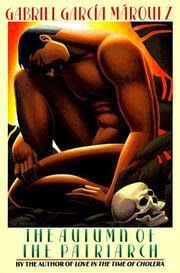Isabelle Allende
A family saga charting the Trueba family across contemporary Chilean history. Allende is the niece of former president, Salvador Allende, and this closeness to Chile's turbulent political history had a clear impact on the book and its characters. The story follows family patriarch, Esteban, from childhood at the turn of the past century through the turmoil of the country's leftist and rightist clashes and the CIA-backed coup that overthrew her real-life uncle and the president in her novel.
Her family became a target under the Pinochet regime, and Allende eventually was forced into exile for 13 years. One might imagine that this kind of experience would infuse the writing with rancour towards those that had attacked her and her family, but instead the pointlessness of ideological clashes was was of the main themes I took away from the book.
Available in translation as The House of Spirits, and was adapted for a star-studded film of the same name in 1993 with Jeremy Irons, Meryl Streep, Glenn Close, Wynona Ryder, and Antonio Banderas.

























































